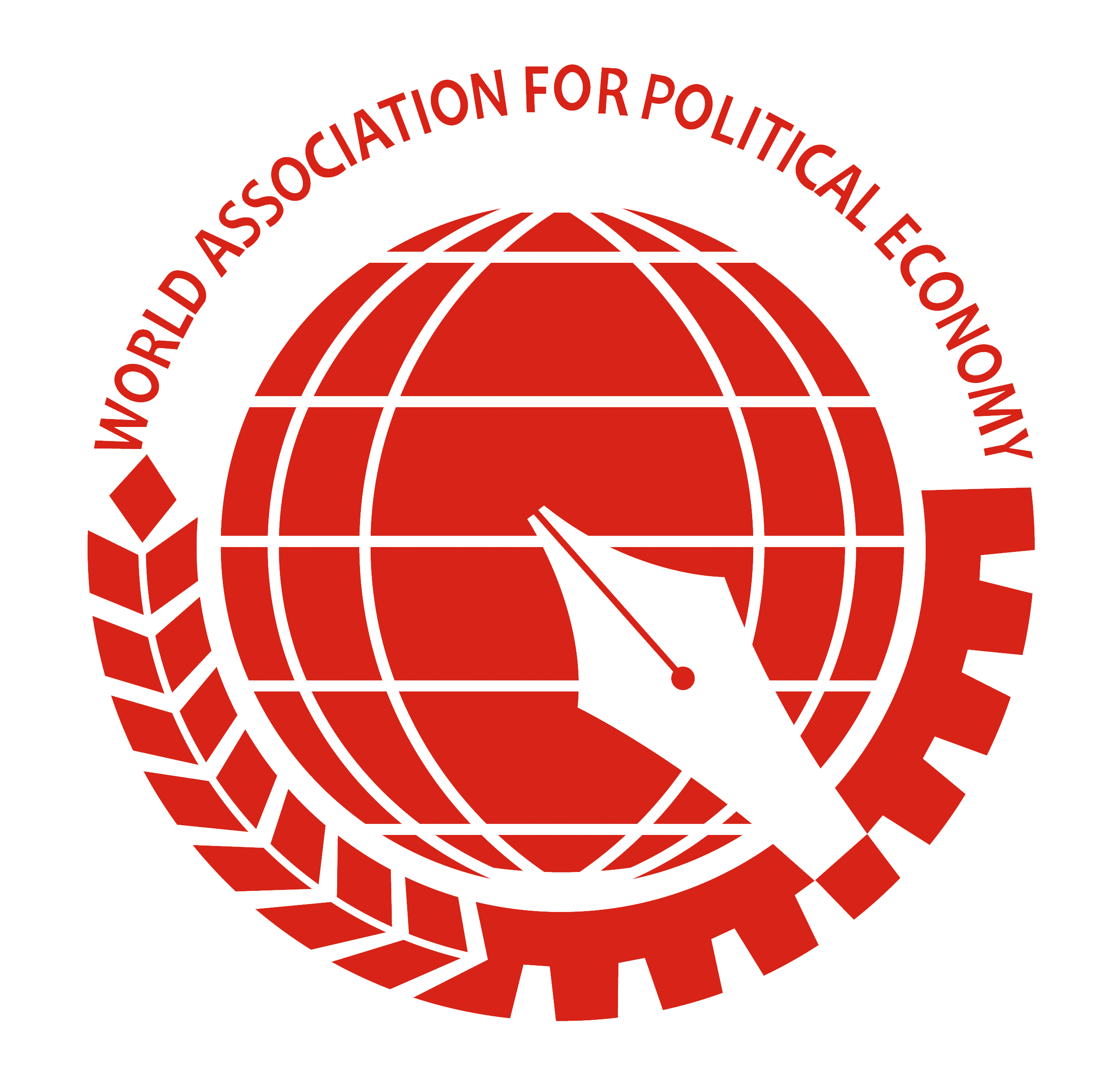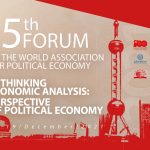The cancelled 15th WAPE Forum on ‘Rethinking Economic Analysis: Political Economy vs Economics’
The 2020 WAPE Forum was to be held in Athens but it did not because of the COVID-19 lockdowns.
This 15th Forum was to be co-organised by WAPE and GAPE (Greek Association of Political Economy – https://poleconom.wordpress.com/) on ‘Rethinking Economic Analysis: Political Economy vs Economics’
This 15th Forum was to be co-organised by WAPE and GAPE (Greek Association of Political Economy – https://poleconom.wordpress.com/) on ‘Rethinking Economic Analysis: Political Economy vs Economics’
The 15th WAPE Forum due on 31 July – 2 August 2020 at Panteion University, Athens, Greece. It is co-organised by WAPE (World Association of Political Economy – https://www.wapeweb.org/) and GAPE (Greek Association of Political Economy – https://poleconom.wordpress.com/) and hosted by the Panteion University
of Social and Political Sciences (https://www.panteion.gr/en/).
The broad theme of the conference focuses on the controversy between the two main alternative traditions in economic analysis, Political Economy and Economics. Economics (with their myopic understanding of the economy as simply market relations, neglect of social and political factors and class struggle and their almost
overt support for capital against labour) has been historically proved incapable of grasping how economies work and forecast and confront competently economic crises. On the other hand, Political Economy (offering a social understanding of the economy, focusing on the sphere of production, linking economic analysis to social and political factors and to class struggle) has been more successful in comprehending the actual workings of the economy and in analyzing economic crises. However, despite their long-standing failures, Economics continue to dominate academia and policy-making centers, especially in the West. Even after the last global economic
crisis and its blatant failure to foresee and to resolve it, its dominance remains unwavered as it is supported by strong vested class interests. Nevertheless, there is growing unrest within both the academia and the society with this failed dominance. Political Economy is the main approach towards which all those dissatisfied with
Economics turn.
This conference aims to juxtapose Political Economy and Economics and contrast their positions on the various fields and areas of economic analysis. Within its broad theme, WAPE 2020 invites all contributions that enrich the perspective of Political Economy and expand the ground for further discussion. Indicatively but not exclusively, proposed papers can touch upon the following issues:
1) Historical anniversaries:
• Friedrich Engels’ 200th anniversary: his legacy in Marxism and Political Economy
• V. I. Lenin’s 150th anniversary: his economic writings
2) Curriculum reform in Economics: How Political Economy can challenge Economics’ dominance of university curricula
3) Contemporary controversies in Macroeconomics: Neoclassicism, Keynesianism and Marxism
• Neoliberalism and the New Macroeconomic Consensus
• Marxism and Macro-economic modelling
4) History of Political Economy
5) Economic History
6) Theory of stages and periodization of capitalism
7) Theories and analyses of economic crisis
8) Profitability, crises and economic cycles
9) Race, class and gender
10) Methodology of economic analysis
11) Trends and challenges in contemporary economic policy
• Neoconservative economic policies
• Economic planning, fiscal and monetary policies reconsidered
• A return of industrial policy?
12) Marxism and the Political Economy of money and finance
13) Labour process, markets and the Political Economy of Work
• Labour movement and Trade Unions
• Flexible employment and unemployment
• The current state of Labour Process Theory
14) The Political Economy of poverty and inequality
• Austerity and the welfare system
• The current state of social policy
15) Political Economy of education
16) Political Economy of health and health policies
17) Environmental Political Economy
18) Urban and regional economics
19) Law and Political Economy
20) World economy: globalization or imperialism?
• International conflicts and imperialism
• The retreat of US hegemony and the emergence of a multi-polar world system
• Political Economy of capital flows
• BRICS, the newly emerging economies and the world economy
• Global value chains and transnational corporations
• Political Economy of foreign direct investment (FDI)
• International Political Economy
21) Political Economy of European integration and the Eurozone crisis
22) Development studies at an impasse
• Developmental state after the Post-Washington Consensus
• Role and policies of international organizations (IMF, WB, WHO, UNHCR, UN etc.)
23) Country case studies
OFFICIAL LANGUAGE: The official language of the Forum is English.
PUBLICATION POSSIBILITIES: All accepted papers will be published as an e-book with ISBN before the conference. Best papers will be considered for publication in the World Review of Political Economy (http://www.plutojournals.com/wrpe/) and the International Critical Thought (https://www.tandfonline.com/loi/rict20) after passing the peer refereeing process.
Recent Posts




